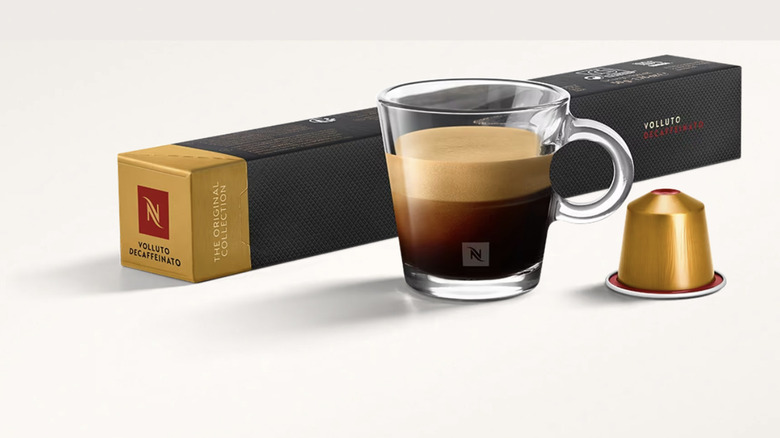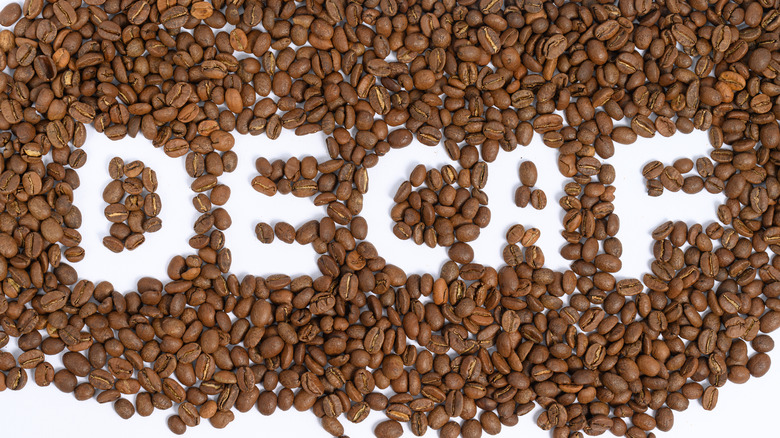Nespresso's Decaf Coffee Pods Aren't As Caffeine-Free As We Thought
Though caffeine occurs naturally in many foods and drinks we consume, it's still a much-discussed and often controversial subject. How much is too much, how does it affect young children, and does it actually have health benefits? Those are just a few of the unending questions swirling around the caffeine conversation, which tends to change based on what the latest research indicates. One thing we know for sure is that moderation is a good idea in caffeine as in other culinary considerations. That's why it's a bit jarring when industry labeling is not always precise.
For many of us, that's the case upon discovering that decaf coffee isn't strictly devoid of caffeine. Nespresso, to its credit, doesn't simply avoid discussing the misconception of zero caffeine in its coffee pods labeled as "decaffeinated." The company instead offers an explanation and specific stats from which we can gauge whether caffeine discrepancies are a major concern.
First of all, Nespresso assures customers that it always complies with the legal limits of caffeine in its coffee pods labeled as decaf. Per USDA regulations, that would equate to no more than 0.1% of caffeine in packaged coffee on a dry basis. Once brewed and compared to caffeinated counterparts, most decaf coffees sold in the U.S. typically show that 97% of caffeine has been removed. That's a pretty good record — but there's still caffeine in those "decaffeinated" beans.
How much caffeine is too much
With any coffee undergoing the decaffeination process, there will be trace amounts of natural caffeine remaining in the beans. Nespresso explains that the caffeine is removed while still in raw form before any roasting or grinding occurs. When all is said and done, there's an estimated 2-6 milligrams of caffeine remaining in each cup of brewed decaf Nespresso, which varies according to the types of coffee and pod configuration.
Nespresso offers seven decaffeinated options to the average consumer, plus another two versions in its professional line. Consumer-level decaf capsules for the "original" Nespresso machines include four options: Ristretto, Arpeggio, Voluto, and Vivalto. The Vertuo line of machines and pods provides three more decaf options: Melozio, Fortado, and Altissio. Each option can have differing trace amounts of caffeine because they're designed to make varying volumes and strengths of coffee per pod. The flavor profiles and strengths of each coffee pod are maintained during decaffeination, assisted by Nespresso's natural removal process, which differs from the chemical-based decaffeinating used by many coffee purveyors.
By comparison, the caffeine in regular Vertuo pods ranges from 60 to 200 mg per cup, far more than the decaf versions. According to the USDA, most healthy adults can consume 400 milligrams of coffee per day without negative effects, with exceptions for conditions such as pregnancy, breastfeeding, and certain health conditions. That's about four or five cups of coffee per day depending on the strength.

